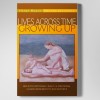Jimmy Fisher wrote a poignant study of Bettelheim, interviewing him as he lay dying, and including correspondence with Rudi Ekstein, Bettelheim’s close friend. Here is my review of Fisher’s book. We can read such books for various motivations — some constructive, some not. In this case, I recommend the book as a humane, sensitive study to understand Bettelheim, an astute thinker, a man who cautioned us about biographies and autobiographies in his Freud and Man’s Soul. With such caution in mind, let’s see what we can learn. (We acknowledge the journal “Psychoananalysis and History.”)
Bettelheim: Living and Dying
David James Fisher
Volume 8 of Contemporary Psychoanalytic Studies
Rodopi Press. (Amsterdam and New York, 2008)
Listen to some statements about psychoanalysis and psychoanalysts. How do they grab you?Analysts are a suspicious bunch, asking “Why?” “Why now?” “How does this feel?” They are even skeptical of their own theories, interpretations and techniques, thereby (hopefully, with enough hard honesty) better able not to need to be taken by their own interpretations, unlike their, at times, idealizing patients.And, while analysts are suspicious, the patient is always right (and wrong).Analysts are soul detectives.
The goals of psychoanalysis are authenticity, wholeness; autonomy (self-rule from the Greek) (p. 3).
The psychoanalytic situation is an island of serenity for dialogue, self-discovery, and affective exploration. (p. 3).
Too much theory estranges, distances, deflects from emotions.
Psychoanalysis needs humaneness, truth, compassion and courage.
The soul is what we have in common in humanity, contains our valuable traits; the soul is our essence, our spiritual core. (p. 25).
Without saying more, we sense we are in the presence of someone who has thought about the inner life and its exploration deeply, humanely, emphatically.
This someone is Bruno Bettelheim, a Ph.D. in aesthetics from Vienna, a professor of Education at the University of Chicago, a director of a school for emotionally-disturbed children. His comments whet our appetites: we want to learn more about his thoughts and how they can enlighten us. Jimmy Fisher — both a cultural historian and psychoanalyst at the New Center for Psychoanalysis, and Training and Supervising Analyst at the Institute of Contemporary Psychoanalysis in Los AngelesNew Center for Psychoanalysis of Los Angeles — does this and more in a serious, thoughtful account of Bettelheim’s last years. Fisher has an advantage over other historians: he knew Bettelheim, spoke with him at length in Bettelheim’s final years.
Bettelheim was not a man to wait for fortune, good or bad, to take place — certainly not the moth-eating deterioration that precedes contemporary death. When, after his wife’s death, his multiple strokes, his swallowing dysphagia, his vision loss, he found death’s pace too piecemeal, he decisively read about the Hemlock Society and set a date to die, the anniversary of the Nazi’s entrance to Vienna. Then, he did the deed, he took his life.
Fisher interviewed Bettelheim, read his correspondence with his close friend Rudy Ekstein, then places Bettelheim’s suicide in a context as an over-determined event, not just tied to Holocaust shame and guilt. He takes up his wife, Trude’s illness and death and Bettelheim’s reactions on pages, 11, 84, 104, 111, 112 (especially),113, 117, 128, 156. Fisher links his suicide not only to his strokes, deteriorating health and stamina, his loss of creativity, loss of colleagues, his dread of living out his last years in a nursing home, but also his sense that he had accomplished his significant missions in life. In fact, Fisher addresses these issues directly while interviewing Bettelheim, including powerful passages about how impossible it is to work through the ego shattering experiences of the camps. (Bettelheim told me that he continued to have nightmares from the camps decades later.) The suicide happened on an anniversary of his Nazi incarceration. Anniversaries have potent psychological echoes, often lethal and fragmenting. Bettelheim ended up in the camps because he delayed escaping from Vienna until he was certain that the soldiers in his underground command were safe. Then he made for the border, only to learn that the Czechs were quite happy to send a Jew (no longer an Austrian citizen by their reckoning) to be a guest of the Nazis.
We Americans are fine forgetters or dismissers. We dismiss our heroes if they transgress humanly — Martin Luther King or John Kennedy’s (irresponsible and unacceptable) sexual exploits wipe out their decades of contributions (for those ready to cast the first stone). Fisher sees this as private matters that do not bear on their legacies. We also forget well: how much is Erik Erikson or Thomas Szasz read in psychoanalytic institutes or even universities today? So too for Bettelheim. Eight decades of work, thinking, writing comes to little or naught, when after his death (not during his life) people made allegations about spanking at the Orthogenic School. (Although Bettelheim wrote about children preferring a good spanking to an intellectual brow-beating in The Good Enough Parent (but, he did not advocate spanking.) Bert Cohler, Professor at the University of Chicago, who died this year, was a child at the School and later a Director of the School: he pointed out that those who complained against Bettelheim were journalists and other literate, accomplished individuals, not bad outcomes for kids who once were disturbed enough to need residential treatment. (Those who complained, Bert also observed, were predominately those who were at the School when Bettelheim retired, as if their fiery fury for being abandoned fed their burning criticism.) As Bert put it, these were the “treatment failures.” Fisher makes similar points in his book (pp. 159-163, for example).
To all this the biographer need attend. But, biography, as Freud and later Bettelheim stated in Freud and Man’s Soul, is suspect. If translation is traitorous, (traduttore, traditore), then biographies are refracted, bent by the lens of the biographer. Look at three such efforts: Richard Pollock, The Creation of Dr. B. ((1997); Theron Raines, Rising to the Light (2002); and Nina Sutton, Bettelheim: Life and Legacy (1996). Pollock’s book is most tragic, most vicious, most misleading to the reader. Pollock, a persuasive journalist, is the older brother of a boy once at the Orthogenic School. One summer, the parents insisted that their younger son return home for an extended visit. Bettelheim recommended against the home visit, as the boy was suicidal. The parents insisted, took the boy home, and while both brothers were playing in a hay loft, the younger fell to his death: what happened exactly only two people know — the dead child and his brother. The brother, Pollock, waited decades and six years after Bettelheim’s demise to take revenge (and, we hope, perhaps assuage his own guilt). Raines, Bettelheim’s book agent, was dazzled by his genius and wisdom. Sutton, a journalist, wrote perhaps the most balanced work, which had the misfortune of coming out just after his death. (My edited book, Educating the Emotions: Bruno Bettelheim and Psychoanalytic Development, 1992, is an intellectual biography written by experts in the various fields Bettelheim touched — residential treatment, anthropology, education, the psychology of the concentration camps and the impact of mass society on the individual’s autonomy. This is more a variation of Selbstdarstellung, an intellectual survey, rather than a biography.) To know the biographer, is to know the biography, not necessarily the subject of the work.
Fisher is both historian and analyst: he interviewed Bettelheim, he read his correspondence with Ekstein, then Bettelheim’s closest surviving friend, and he thought hard about what happened in the denoument of Bettelheim’s life. Fisher enriches our understanding of Bettelheim and subtly approaches the complexity and elusiveness of Bettelheim’s suicide. The chapter entitled “The Suicide of a Survivor: Some Intimate Perceptions of Bettelheim’s Suicide” climaxes and provides an eloquent conclusion to this book. It is moving, sad, heart-breaking, and fiercely honest, including the author’s own subjective reactions to the death. Fisher takes seriously Bettelheim’s intellectual productivity, while engaging in a passionate clinical and cultural dialogue with him. This is a way to respect his significant and lasting contributions.




